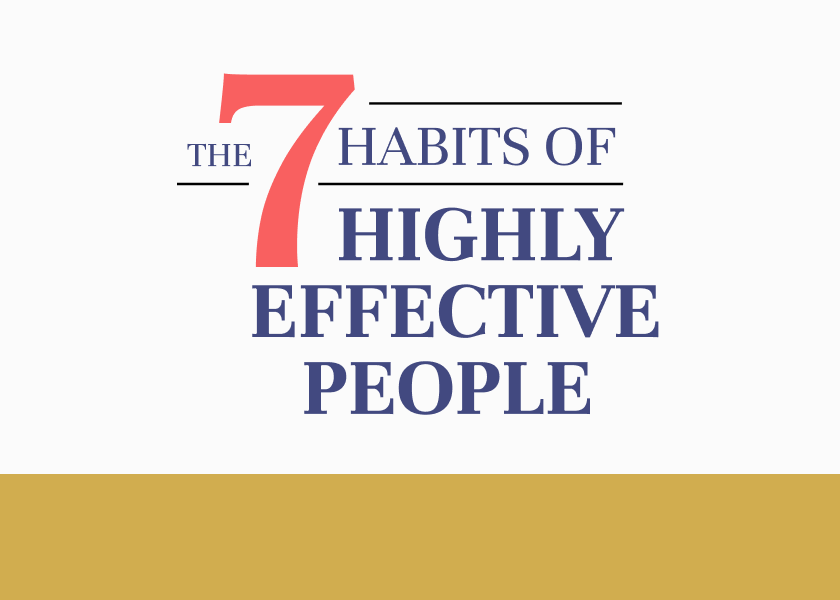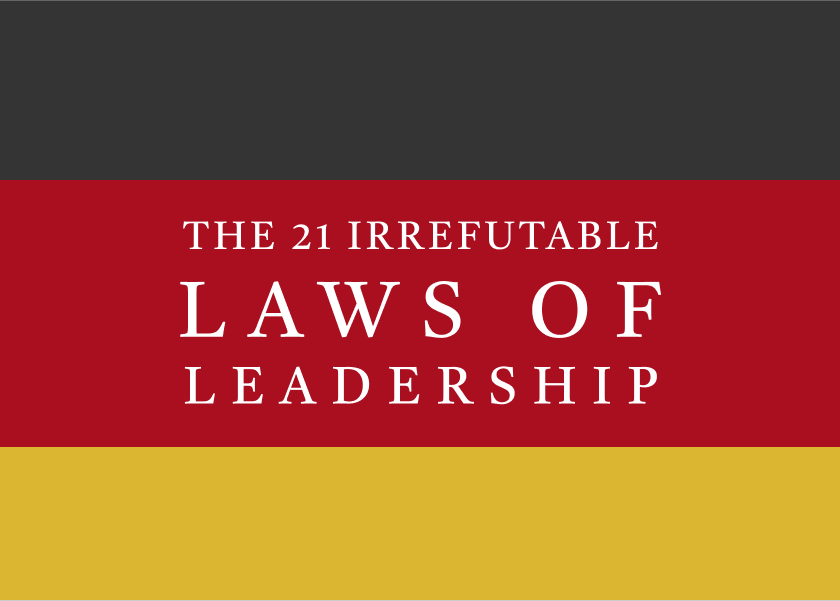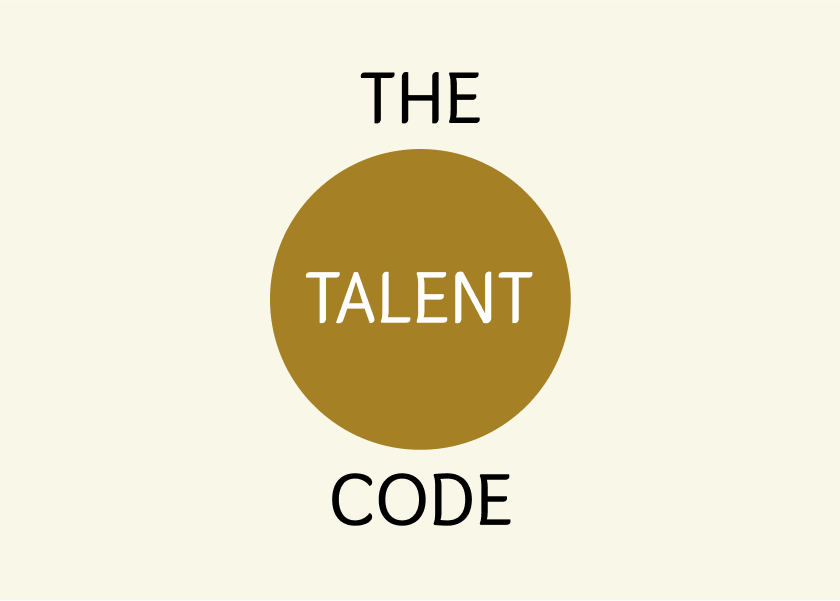The 7 Habits of Highly Effective People by Stephen Covey - Summary
Develop a personal mission, manage your time, and achieve genuine success in all of life. This book is your guide to personal and interpersonal effectiveness, focusing on character building. It emphasises principles over quick fixes, advocating for a life of integrity, proactivity and purpose.

The following is a summary of the book The 7 Habits of Highly Effective People by Stephen Covey.
Listen to ShelfHelp's podcast summarising The 7 Habits of Highly Effective People.
Introduction
Do you ever feel like you're running on a hamster wheel, constantly busy but not truly effective? Do you struggle to balance your personal and professional life, often feeling overwhelmed by the urgent demands of the day? If so, The 7 Habits of Highly Effective People by Stephen R. Covey may offer some answers. This seminal work, a long-standing bestseller, has guided millions in their journeys toward effectiveness, leadership, and personal fulfilment. This article offers a comprehensive summary, saving you time while providing actionable insights from this transformative book.
Table of Contents
- About the Author
- Who Should Read This Book?
- Key Insights and Themes
- Detailed Summary
- Review
- Actionable Takeaways
- FAQs
- Conclusion
About the Author
Stephen R. Covey (1932-2012) was a highly respected leadership authority, family expert, teacher, and organizational consultant. He dedicated his life to teaching principle-centred living and leadership. Covey held an MBA from Harvard University and a doctorate from Brigham Young University, where he also served as a professor. He is best known for The 7 Habits of Highly Effective People, which has sold over 50 million copies worldwide and was named the #1 Most Influential Business Book of the 20th Century. His work has influenced countless individuals and organisations. Covey also co-founded FranklinCovey Company, a leading global professional services firm.
Who Should Read This Book?
This book is a must-read for anyone seeking to improve their personal and professional effectiveness. It is particularly beneficial for:
- Leaders and Managers: Those in leadership positions will gain valuable insights into developing their character, building trust, and empowering their teams.
- Professionals: Anyone wanting to enhance their productivity, time management, and communication skills will find practical advice in this book.
- Individuals seeking personal growth: The principles outlined in the book can guide anyone towards greater self-awareness, purpose, and fulfillment.
- Families: The book's principles can be applied to create stronger and more effective family relationships.
- Educators: The 7 Habits model can be used to foster leadership and personal development in students of all ages.
Key Insights and Themes
The 7 Habits of Highly Effective Peoplepresents a principle-centered approach to personal and interpersonal effectiveness. Here are some key takeaways:
- The Character Ethic vs. The Personality Ethic: The book emphasises the importance of building character based on integrity, humility, and fidelity. It contrasts this with the superficiality of the personality ethic, which focuses on techniques and quick fixes.
- Inside-Out Approach: True change begins within, with your paradigms, character, and motives.
- Paradigms: Your perceptions, assumptions, and frames of reference shape how you see the world. Recognising and shifting your paradigms is crucial for growth.
- The Seven Habits: The book is structured around seven interconnected habits that provide a holistic approach to effectiveness.
- Private Victory before Public Victory: You must first achieve self-mastery (habits 1, 2, and 3) before you can achieve success in relationships (habits 4, 5, and 6).
- Interdependence: The book promotes the concept of working effectively with others through mutual benefit (Win-Win).
- Continuous Improvement: The habit of "Sharpening the Saw" emphasises the importance of continuous self-renewal in all four dimensions: physical, social/emotional, mental, and spiritual.
- Principles: The 7 Habits are based on universal, timeless principles.
Detailed Summary
The book is divided into three parts, each focusing on different stages of development:
Part One: Paradigms and Principles
- The Power of a Paradigm: The book introduces the concept of paradigms and their impact on our perception. It highlights the importance of paradigm shifts for personal change. It distinguishes between the Character Ethic, which focuses on principles, and the Personality Ethic, which focuses on techniques.
- The Seven Habits - An Overview: Covey explains that the 7 habits are habits of effectiveness because they are based on principles that bring long-term beneficial results. He also notes that the habits are based on a paradigm of effectiveness called the P/PC Balance which is best illustrated by Aesop’s fable of the goose and the golden egg.
Part Two: Private Victory (Independence)
- Habit 1: Be Proactive: This habit focuses on taking responsibility for your life. It encourages a shift from reactive to proactive behavior. The concept of the Circle of Concern and Circle of Influence is introduced, urging readers to focus on what they can control. Proactive language is also key for this habit.
- Habit 2: Begin with the End in Mind: This habit emphasises the importance of having a clear vision and purpose. It involves defining personal mission statements and focusing on goals that are aligned with one’s values. Mental creation (visualizing the desired outcome) comes before the physical creation.
- Habit 3: Put First Things First: This habit focuses on time management and prioritizing activities based on importance rather than urgency . The book explains the time management matrix, which divides tasks into four quadrants. Quadrant II (important, not urgent) activities are emphasised as the key to effectiveness. Covey presents the concept of a weekly plan as more effective than a daily plan .
Part Three: Public Victory (Interdependence)
- Habit 4: Think Win-Win: This habit promotes seeking solutions that are mutually beneficial in all interactions . It explores six paradigms of human interaction, with Win-Win being the most effective for long-term relationships . The concept of the Emotional Bank Account is also introduced .
- Habit 5: Seek First to Understand, Then to Be Understood: This habit emphasises the importance of empathetic listening before attempting to make yourself understood . It requires putting aside your own autobiography and genuinely seeking to understand the other person's perspective. Covey explains that the key to effective interpersonal communication is to seek first to understand, then to be understood .
- Habit 6: Synergise: This habit focuses on the power of creative cooperation and teamwork . Synergy is the combined result of valuing differences and creating something greater than the sum of its parts . This involves finding third alternatives or novel solutions that neither party initially envisioned .
Part Four: Renewal
- Habit 7: Sharpen the Saw: This habit is about self-renewal and continuous improvement. It involves regularly renewing yourself in four dimensions: physical, social/emotional, mental, and spiritual . This ensures continuous growth and prevents burnout . The idea is that, for example, if you spend all your time sawing at a tree without sharpening the blade, it will eventually become too hard. Taking time for renewal is important for long-term effectiveness.
Review
The 7 Habits of Highly Effective People is a powerful and thought-provoking book that has stood the test of time. Its greatest strength is its emphasis on principles rather than techniques. It provides a holistic framework for personal development, stressing the importance of character, integrity, and relationships.
However, some may find the book a bit lengthy and at times repetitive. The language is occasionally academic, which may not appeal to all readers. The concepts, while profound, require effort and consistent application.
Actionable Takeaways
How to apply these lessons in real life:
- Identify your paradigms: Reflect on your assumptions and perceptions. Are they helping you, or holding you back?
- Create a personal mission statement: Define your values and purpose. Use the exercises in the book to start this process.
- Focus on Quadrant II activities: Prioritize tasks that are important but not urgent, such as planning, relationship building, and self-renewal.
- Practice empathetic listening: Seek to truly understand others before trying to be understood .
- Seek Win-Win solutions: Look for outcomes that are mutually beneficial in all interactions .
- Renew yourself regularly: Schedule time for physical, mental, social/emotional, and spiritual self-renewal .
- Start small: Commit to one or two key changes and build upon them. The 7 habits are a process and not a quick fix.
FAQs
- What is "The 7 Habits of Highly Effective People" about? "The 7 Habits of Highly Effective People" is a self-help book that provides a principle-centered approach to personal and interpersonal effectiveness. It focuses on building character, setting goals, prioritising tasks, and fostering positive relationships.
- Is "The 7 Habits of Highly Effective People" worth reading? Yes, this book is widely considered a classic for good reason. Its principles have helped countless people improve their personal and professional lives. While it requires an investment of time and effort, the long-term benefits are considerable.
Conclusion
The 7 Habits of Highly Effective People offers a timeless framework for personal and professional growth. By focusing on character, principles, and continuous improvement, you can create a more effective, fulfilling, and meaningful life. Don't just read this summary – start implementing the 7 habits today and experience the transformative power of this classic work.
As an Amazon Associate, ShelfHelp may earn money from qualifying purchases. Needless to say, ShelfHelp only includes affiliate links to books we recommend and think are worth your time reading.




